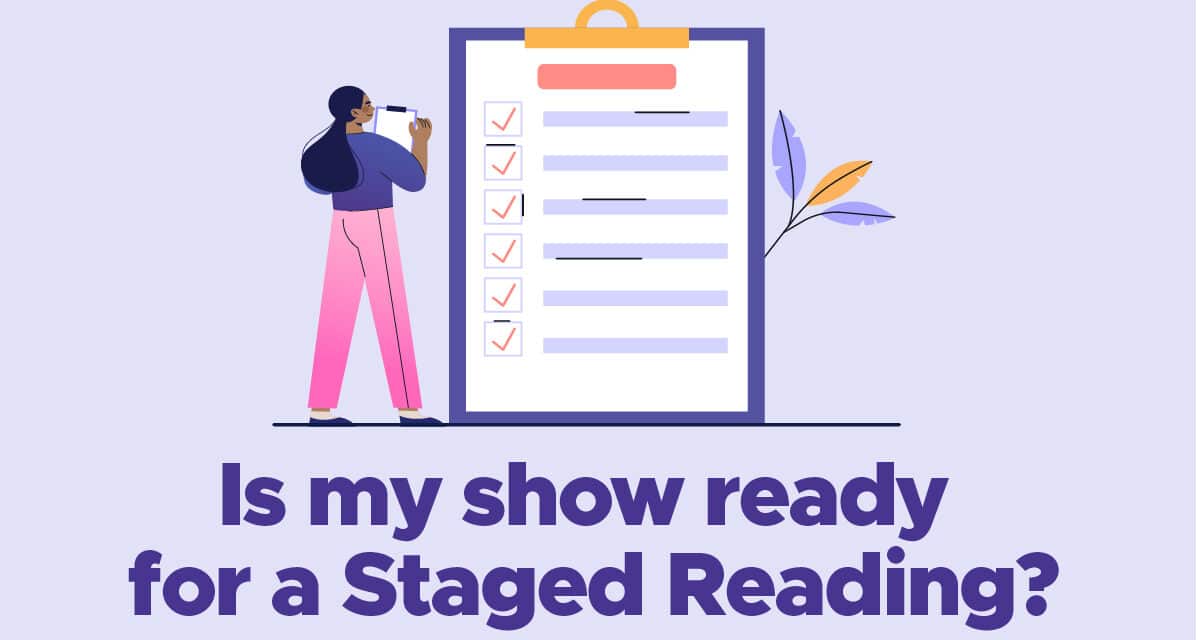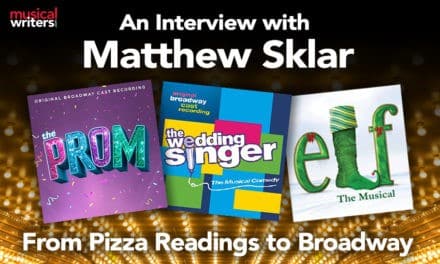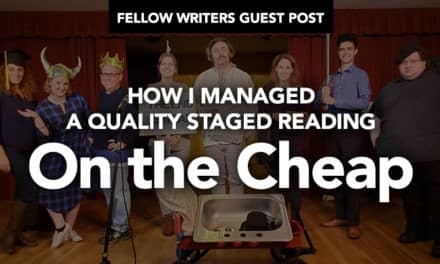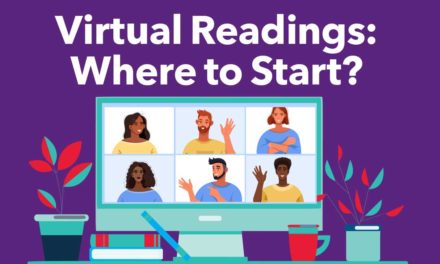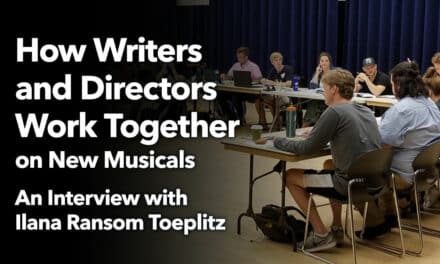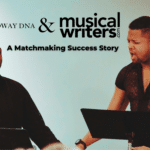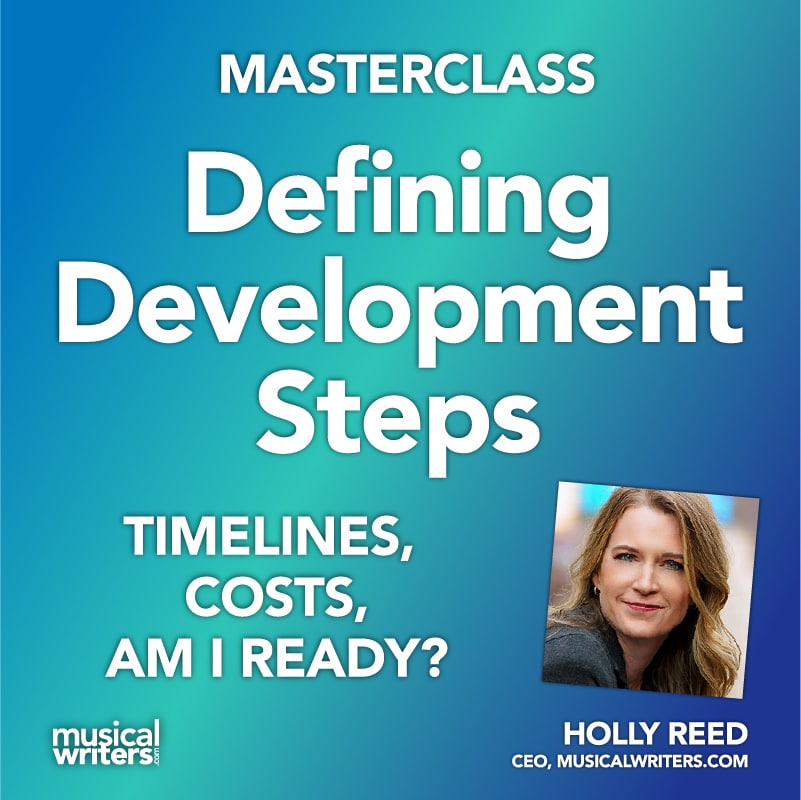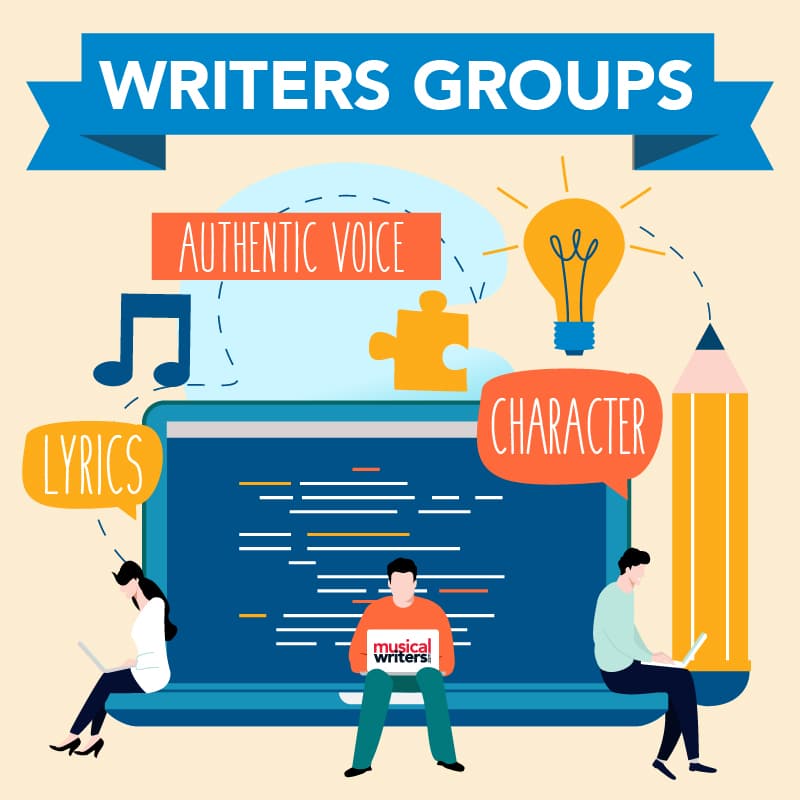As the Producing Director (now CEO) at MusicalWriters.com, I’ve had the privilege to produce and direct more than 15 staged readings and facilitate over 25 table reads for our brilliant Academy Members in the past two years. I’ve developed a keen sense of whether a show is ready for a staged reading and I’m passionate about helping writers fine-tune their vision and bringing their musicals to life.
Your show is ready to submit for a staged reading if…
You can succinctly explain what your show is about.
The first sign of being ready for a reading is to have an elevator pitch—both a written pitch as well as a spoken pitch. If you cannot succinctly put into words what your show is about within 30 to 60 seconds, you’re not ready for a reading. You might have pages and pages of music, you might have script and score, you might have all of these ideas, you might even have vision boards for costumes and sets and lighting and everything—but if you can’t quickly and succinctly explain what your show is about, you’re not ready.
You know the cast needs of the show.
Make sure you have clear expectations of the cast and character requirements of your show. We would also encourage you to break stereotypes and leave characters room to be open to all genders, ethnicities, sizes, vocal types, ages, etc. Casting can be difficult with shows that have very specific needs. If your show requires a 78-year-old Asian American man who can tap dance and is a high, high tenor, that’s going to be hard to cast.
You have a clear script and piano/vocal score!
To have a successful reading, we need a correctly formatted script and a complete piano/vocal score. Bonus points if you add guitar chords to your piano/vocal, it gives the pianist and band a little bit more flexibility. Double bonus if you can provide an integrated script/score for the reading!
What does a staged reading look like?
Are actors on or off book?
I don’t require our actors to be off-book for the script, but I do encourage all my soloists to be off-book on their songs. The only exception is with patter songs—songs that are super wordy. Obviously, when solos are memorized, I get better vocals. Actors also connect with the audience so much better.
What about instrumentation?
For the most part, the instrumentation for our readings is piano-only. We’ve had some where acoustic guitar has been a really important part, so we made that happen. If you had a show with a very meaningful and essential cello line, we would do everything in our power to find a cello player. We typically avoid full-out percussion, electronic instruments, trumpets and things like that because they’re almost impossible to sing over. We would have to look at the show and the venue to see what we can make happen!
What is the writer’s involvement?
The process for the writer’s involvement is really up to you. I want the writers to be involved as much as they are comfortable. I definitely want them to come see the performance if possible, but I don’t encourage the writer to be at every rehearsal. However, I do need writers who are going to be available and responsive to my questions about their show. Otherwise, I have to answer those questions the way I see fit. I may need to know, “Did you really mean for this song to be sung up the octave? If Mrs. Jones is going to have a little operatic soprano moment, awesome—we’ll do that, but might it have just been a typo?” I need writers who are going to interact with me about the simple things (such as inaccuracies between the scripts and the score), as well as have conversations about the tougher things (like “can we change the language of this sentence because it’s unnecessarily offensive?”). We need to be able to have those conversations for us to both be happy with what that final product looks like.
Right now we are based in Dallas/Fort Worth, where we can provide the entirety of the reading for free. We have access to rehearsal space, performance space, actors and musicians. We can go to other locations, but then things start to cost money. If you have the ability to help offset costs, we can certainly put up a reading in New York or somewhere closer to the writer’s home.
What kinds of feedback do you provide?
The final thing that we offer you with these readings is feedback from the producer, cast and audience. That is my favorite part, and we can do that in whatever format that you’re comfortable with. I understand how difficult that part of this process is. These are your babies, and sometimes it’s tough to take that constructive criticism.
As a director, we will chat about the details of the script and score – points where clarification was needed – or the momentum of the show slumped.
As a producer, I’ll say, “This is how it worked for the stage reading, but if I was doing this show in real life, fully realized, this is where my roadblocks would be.”
We also will give cast feedback, such as how they felt playing those characters, what worked, what didn’t work for them, what parts were really difficult to get into their voice, what parts of their character were really difficult to realize, or what even what dialogue or lyrics didn’t feel right or didn’t roll off the tongue.
And the best feedback is the audience feedback. Doing these shows so intimately in a small space allows the actors to both hear the audience laugh and cry and feel them laugh and cry. They can feel the reactions to your work, and that is the best feedback that we can get.
Do you record the readings?
Yes, we are able to record all of our staged readings.
If we are in an outdoor venue, it’s sometimes difficult to get a clear, professional recording. If we are planning an outside reading, we’ll also record the last indoor run-through as a back-up.
Do local producers come?
Yes, we do invite local producers. I have great relationships with theater owners, artistic directors, and producers. Depending on where you are in your development, if that is something you’re looking for, we definitely can provide that. We know the difficulty of getting a new musical into an existing theater season. Theater owners can read scripts all day long, but often it’s difficult for them to just look at a script and music and visualize what can be done with it. At our readings, I have had so many people say, “Oh my gosh, that would be so cool in our space!” because it gives them the ability to not only hear the show on live voices, but we also leave so much to the imagination that it allows them to put their producer/creative mind into it. A good description (that my mom said!) about our performances is that they are kind of like a radio show but in person, because there is so much imagination involved.
Can you use my tracks?
No, we don’t use tracks.
Tracks are incredibly limiting – especially for underscoring and dance breaks. More often than not the music doesn’t line up because we’re not walking across the stage and we’re not doing costume changes or choreography. Also, it’s helpful to work from the piano/vocal so we have flexibility with the song keys.
Is underscoring or transitional parts usually included in a reading?
Underscoring yes, transitional not so much. A lot of times I find myself only playing the first couple of measures of any written transitional parts because we don’t need it. There’s not a scene change, there’s no sets moving, it’s literally just people walking from chair to stand. But underscoring, I love. I think that underscoring sets the scene so much. It makes emotional moments more emotional.
What about the length of the show?
The show length doesn’t really matter as long as it’s interesting and captivating. We can do the typical full length with an intermission. And I also love short musicals. I do think that 1:15-1:30 with no intermission is really good. I will say, though, that a lot of producers really like intermissions because they make a lot of money at intermission! Intermissions can definitely be used as a part of the story, such as for creating a cliffhanger.
Do you need demo tracks of each song?
I don’t NEED demo tracks as long as I have a fully realized piano/vocal score. At 11 o’clock on a Tuesday night, I’ll perform the whole show in my living room by myself. I put two iPads up—a script on one and the score on the other—and go through and play it all. It also helps me see if what’s on the page translates to what the writer has envisioned, and not depending on learning or understanding the songs by rote. However, if you need demo tracks made for pitching the show later, you’ll have a whole cast of people who’ve already learned your music who would love to sing those for you!
WHY did you write this show?
Know why you wrote your show.
One thing I want to leave you with is this: What do you really want and need to write? We all have heard stories about why famous songs or hymns or shows were written, and I think that that’s really important. As you’re building a community and a following around these shows, know your why. Why did you need to write this show? Why did you need to tell this story? Why did you need to put this with music? When submitting and pitching your show, these are important points to make.
Ready to submit your show? Start with our Academy Reading Series! Click here for info.

